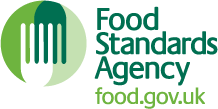Protecting your plate

Ed McDonald, Food Fraud Liaison Officer at the Food Standards Agency in Northern Ireland (FSA in NI) has a clear mission: To protect the public by ensuring that food is safe and is what it says it is. As the prevalence of food crime increases internationally, so too does the government’s response in tackling a potentially deadly issue. McDonald tells us more about his role working alongside thousands of others across the food supply chain to protect public health.
What is food crime?
Food crime involves serious and intentional dishonesty that impacts detrimentally on the safety or authenticity of food, drink or animal feed. It involves unscrupulous individuals and businesses at all levels of the food chain knowingly breaching regulations designed to keep food safe for Northern Irish consumers. By mislabelling products for example, the public may consume staples like olive oil and wine whose quality, safety, origin or freshness is compromised.
Another more immediate and deadly issue that drives my mission to keep the public safe is the sale of the industrial chemical dinitrophenol (DNP), sold to often vulnerable people on the promise of a quick fix for weight loss. DNP is not a food but when it’s sold for human consumption, it falls to the FSA and our National Food Crime Unit to investigate.
How can consumers trust the food they buy is safe to eat?
FSA in Northern Ireland works with our partners in district councils, the PSNI, Department of Health, other government agencies and industry, to name but a few, in a combined effort to tackle food crime. We also rely on the public and those working in food businesses to report intelligence of any suspected food illegality.
My role is to identify issues that undermine the FSA’s core purpose to keep food safe and resolve them in ways that contribute to increased consumer protection and confidence.
What kind of issues are you dealing with locally?
My work incorporates everything from working with police on the prevention of illegal deer poaching right through to the illegal gathering of shellfish that is linked to labour exploitation of workers. Several issues arise from such investigations. Meat that enters the food chain that has been illegally slaughtered, isn’t subject to hygiene, safety or welfare checks.
When it comes to illegal shellfish harvesting, the environment and water quality may not have been monitored by FSA controls and might result in an outbreak of food poisoning. Where the workers are illegal and possibly exploited, we’ll bring our expertise to assist partner organisations in their investigations. Food crime is not victimless; it puts all of us at risk.
Have you successfully prosecuted anyone involved in matters relating to food crime?
With regards to the sale of DNP marketed as a weight loss aid, I worked with Ards and North Down Borough Council, our National Food Crime Unit and PSNI to investigate an individual selling DNP online.
This was the first UK prosecution and resulted in a suspended jail sentence. It also set the precedent for the July 2018 manslaughter conviction, handed down at Inner London Crown Court, where the defendant received a seven-year custodial sentence following the death of a teenager who had taken eight pills containing DNP.
How can the public report suspected food crime to the FSA?
Together with our partners in government and industry, we will continue to ensure that the high standard of food safety and consumer protection we enjoy in this country is maintained.
This includes UK expansion of the National Food Crime Unit to include an in-house investigative capability.
Food Crime Confidential is a reporting facility where anyone with suspicions about food crime can report these safely and in confidence, over the phone or online. More information about food crime and an online reporting form can be found at www.food.gov.uk/safety-hygiene/food-crime
T: 020 7276 8787






